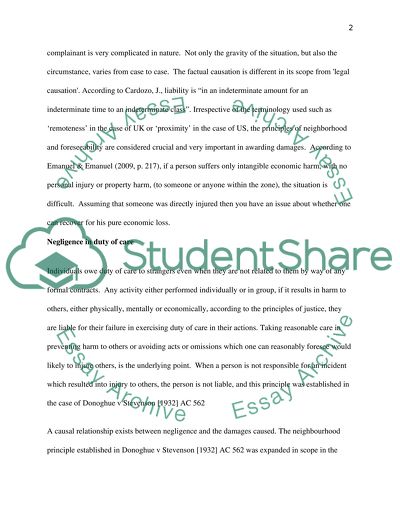Cite this document
(“In Tort law, pure economic loss is never recoverable in an action for Essay”, n.d.)
Retrieved from https://studentshare.org/environmental-studies/1419954-in-tort-law-pure-economic-loss-is-never
Retrieved from https://studentshare.org/environmental-studies/1419954-in-tort-law-pure-economic-loss-is-never
(In Tort Law, Pure Economic Loss Is Never Recoverable in an Action for Essay)
https://studentshare.org/environmental-studies/1419954-in-tort-law-pure-economic-loss-is-never.
https://studentshare.org/environmental-studies/1419954-in-tort-law-pure-economic-loss-is-never.
“In Tort Law, Pure Economic Loss Is Never Recoverable in an Action for Essay”, n.d. https://studentshare.org/environmental-studies/1419954-in-tort-law-pure-economic-loss-is-never.


